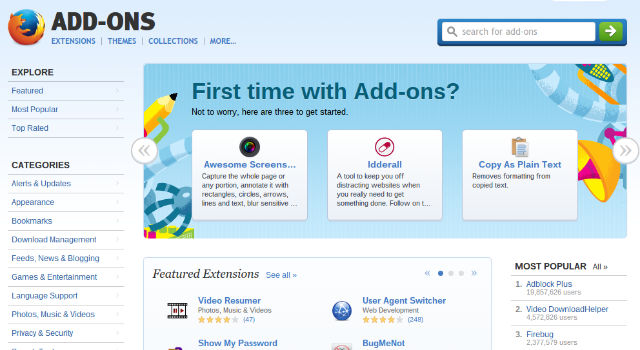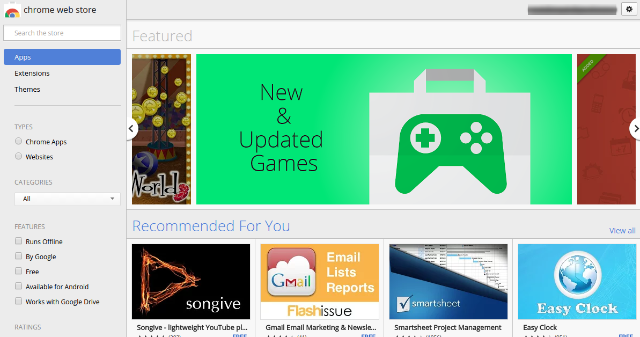Very soon, you'll be able to run all your favorite Chrome extensions in Firefox. This game-changing development is likely to bring about a new renaissance in Firefox users and revolutionize the way extensions are created.
This change was announced as part of a raft of Firefox add-on changes from Mozilla. They are evolving to take advantage of a new era of technology and the current landscape of extension development.
Separate Processes
One of the most important announcements was that Mozilla will be incorporating new technologies like Electrolysis and Servo within Firefox, and will therefore make add-ons faster, safer and separated into multiple processes.
What this means for users is that the browser frame and the tabs are separate processes, and if one tab crashes everything else keeps on working. Brilliant news!
Validated Add-Ons For Firefox
There are also new developments to protect users from spyware and adware. Mozilla will be validating and signing all add-ons starting from Firefox 41 on September 22nd.
The add-on signing schedule is as follows:
- Firefox 40: Users see a warning about unsigned extensions, but extensions continue to work.
- Firefox 41: Unsigned extensions will be disabled by default, and signature enforcement can be turned off.
- Firefox 42 and beyond: This will disable and prevent the installation of unsigned extensions.
It's expected that Firefox 43 will be released by December 2015, so developers will need to take action quickly to get their add-ons signed.
Developers need to also be aware that the XUL and XPCOM technologies will be deprecated over the next year or so.
Run Any Extension Using WebExtensions
Mozilla will be implementing the WebExtensions API to make it easier for developers to build extensions across Chrome, Firefox, Opera and Microsoft Edge with minimal changes. The WebExtensions API is largely compatible with Blink, which is how Chrome and Opera extensions are developed.
This also means that extensions written for other browsers will be able to run in Firefox, meaning you will soon be able to use your favorite privacy-friendly browser to run the plethora of amazing Chrome extensions available in the Chrome store.
"Extension code written for Chrome, Opera, or, possibly in the future, Microsoft Edge, will run in Firefox with few changes as a WebExtension." -- Mozilla.
Mozilla plan to keep tabs on things though, by ensuring all foreign extensions are validated and signed by Mozilla. Only then will they be available through the developer's site or the Firefox add-on store as a WebExtension. Keep visiting addons.mozilla.org (AMO) to see new releases.
Developers are being encouraged to start testing WebExtensions straight away, and meanwhile Mozilla are discussing with other browser vendors how they can standardize some of the API even further.
Obviously, this move has upset many developers, but overall it should make life easier for developers of multi-browser extensions and for all users of Firefox.
Reasons to Switch to Firefox
If you've been feeling trapped in Chrome, or you're not sure whether or not you can actually trust Google, you'll instantly feel relieved about being able to switch to Firefox. If you're not so sure, consider these points:
- If you have a large monitor, text in Firefox will look sharper and more in focus.
- Firefox is far more flexible in settings.
- Firefox lets you customize everything.
You can ease the transition by syncing your browser settings before you switch. Once you've made the switch, be sure to make Firefox feel like home again and to adjust Firefox from its default browser settings.
What Extensions Are You Waiting For?
Popular Firefox extensions like DownThemAll and webdev tool Firebug may be huge drawcards for using Firefox already, but what have Firefox users been missing out on? Lots.
Although, Firefox has recently caught up a little, letting users use WhatsApp web, cast to their Chromecasts and mute tabs (with the right extension).
Still, many more apps are being developed for Chrome at the moment than for Firefox. What is the first Chrome extension you'll want in Firefox? Tell us!





